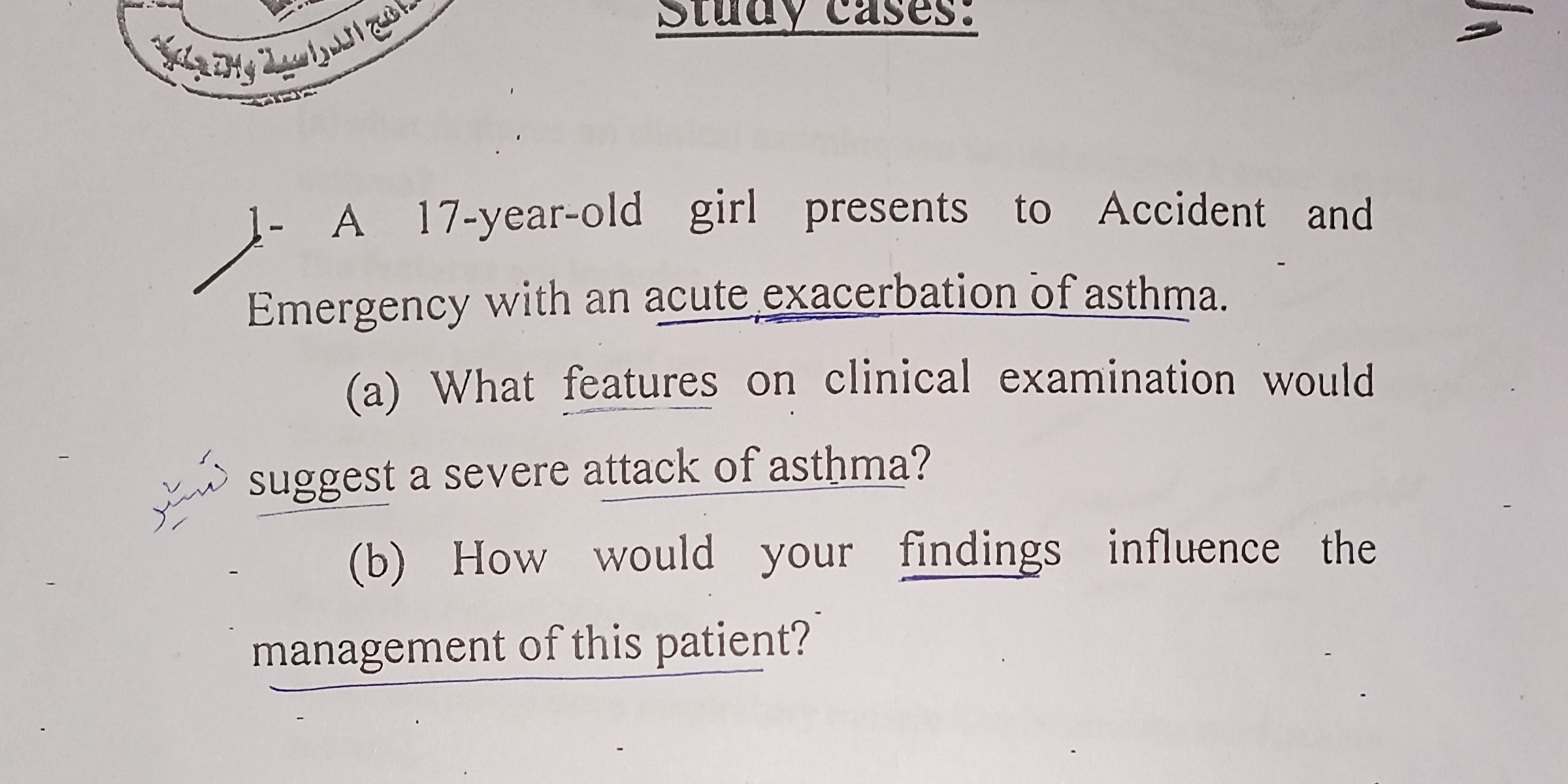A 17-year-old girl presents to Accident and Emergency with an acute exacerbation of asthma. (a) What features on clinical examination would suggest a severe attack of asthma? (b) H... A 17-year-old girl presents to Accident and Emergency with an acute exacerbation of asthma. (a) What features on clinical examination would suggest a severe attack of asthma? (b) How would your findings influence the management of this patient?

Understand the Problem
The question presents a clinical scenario involving a 17-year-old girl with an acute asthma exacerbation. It asks for the clinical features that indicate a severe asthma attack and how these findings would affect the management of the patient.
Answer
Severe symptoms include 'quiet chest,' cyanosis, and use of accessory muscles; manage with oxygen, bronchodilators, and corticosteroids.
The presence of features like a 'quiet chest,' use of accessory muscles, cyanosis, inability to complete sentences, and altered consciousness suggest a severe asthma attack. If these signs are present, the management should include immediate administration of high-flow oxygen, nebulized bronchodilators, systemic corticosteroids, and possible admission to the intensive care unit for further monitoring and treatment.
Answer for screen readers
The presence of features like a 'quiet chest,' use of accessory muscles, cyanosis, inability to complete sentences, and altered consciousness suggest a severe asthma attack. If these signs are present, the management should include immediate administration of high-flow oxygen, nebulized bronchodilators, systemic corticosteroids, and possible admission to the intensive care unit for further monitoring and treatment.
More Information
Recognizing signs of severe asthma is crucial for initiating appropriate life-saving measures swiftly.
Tips
Common mistakes include underestimating the severity of symptoms and delaying the initiation of emergency treatment.
Sources
- Asthma exacerbations and severe asthma management - pmc.ncbi.nlm.nih.gov
- Asthma attack management - Mayo Clinic - mayoclinic.org
AI-generated content may contain errors. Please verify critical information